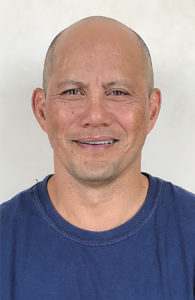
One of the most frequently asked questions I receive is “How do I lose weight?” Well, we all have heard of a million and one ways to shed those unwanted pounds and reveal the six-pack hiding behind the insulating layer. The truth of the matter is: There is no secret formula or answer to the question. The most important piece to the puzzle of losing weight lies between our ears. This is where the process of developing the right mindset begins. Every diet and weight-loss scheme has its pros and cons, but for any one to really work, you have got to get your mind right.
Here is the story and journey of athlete Valerie Matsunaga, a retired pharmacist who has won awards in weightlifting: 2015 Olympics, Silver Medal in the Masters World Cup; 2017 World Masters Games, Silver Medal; and 2017 National Masters Weightlifting Championships, Bronze Medal.
Val: I want to lose weight, Coach, what do I do first, exercise or diet?
Coach Vernon: Every journey begins with a single step. Start with setting a goal and a vision.
Val: I want to lost 5 pounds, well, actually, I want to look like Marie Osmond after her transformation.

Coach: For a lifetime or long-term change to occur, it has to be a lifestyle change that you can live with. Take small baby steps with day-to-day changes. The key to weight management is balancing what you eat with what your body spends. To lose a pound, you need to have a calorie deficit of 500 calories per day or 3500 per week, on average. This can easily be achieved balancing diet and exercise. Make a log of everything you consume in a week, calculate your caloric intake, and formulate an exercise routine to burn those calories.
Val: I’ve tried keeping a food diary, writing down everything that I ate. I got really tired.
Coach: There are many different tools available. If you have a smart phone, try “My Fitness Pal.” You can easily enter what you consume and it even gives you a breakdown of what you ate, by nutrients, such as protein, carbohydrates, and fats. There is no one size fits all model, and as a general rule to start, a goal of 40% protein, 40% carbohydrates, and 20% fat is a good baseline.
Val: I gave “My Fitness Pal” a try. It was simple, fun, and very effective. Coach, this is too hard to maintain every day. I am a visual person, and it’s too much math for my simple brain.
Coach: Here’s a solution: Meal Preparation. Planning your meals, breakfast, lunch, and dinner, and two snacks, with consistent amounts of protein, carbs, and vegetables on a plate per meal, makes this easy, day to day. Simply put, take pictures of what you ate for breakfast, lunch, and dinner today. Let’s see what “My Fitness Pal” says you will weigh in 5 weeks.
VA: Yikes, I didn’t realize how much fat I was eating every day or how many calories I ate at night.
Coach: Now that you have a tool to keep you accountable for diet, develop more muscle tone with a simple weight-training program. You will burn more calories. It’s that simple.
The plan is simple:
- Develop the right mindset;
- Follow a balanced diet;
- Include a balanced exercise
regimen of aerobic and
anaerobic activity; and - Rest and Recover.
Have fun in your journey to losing weight.
